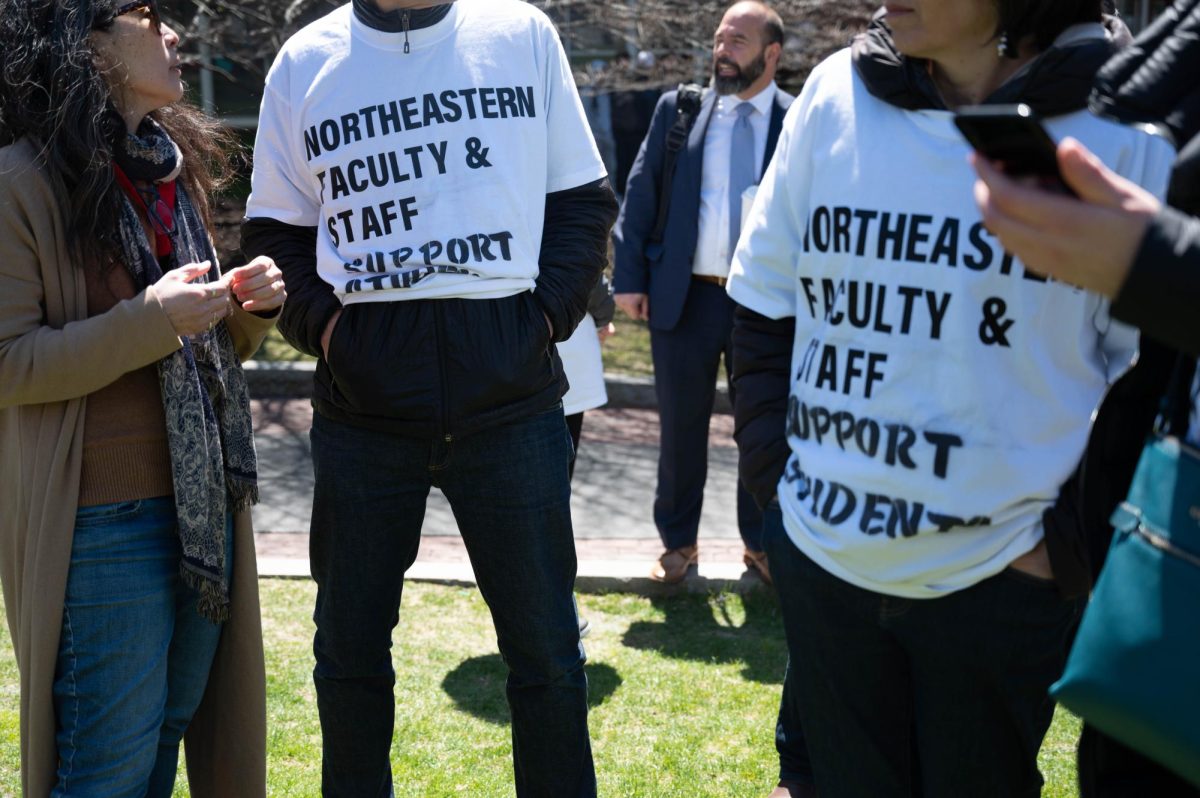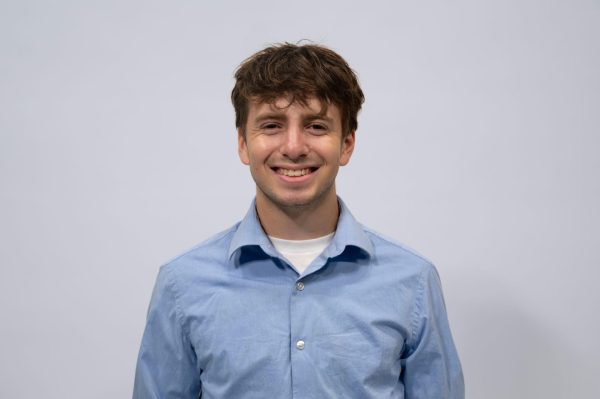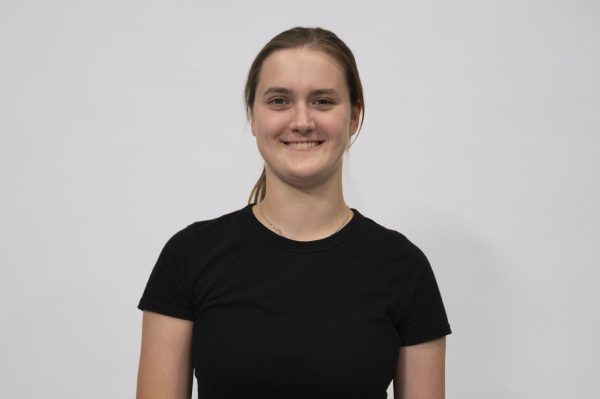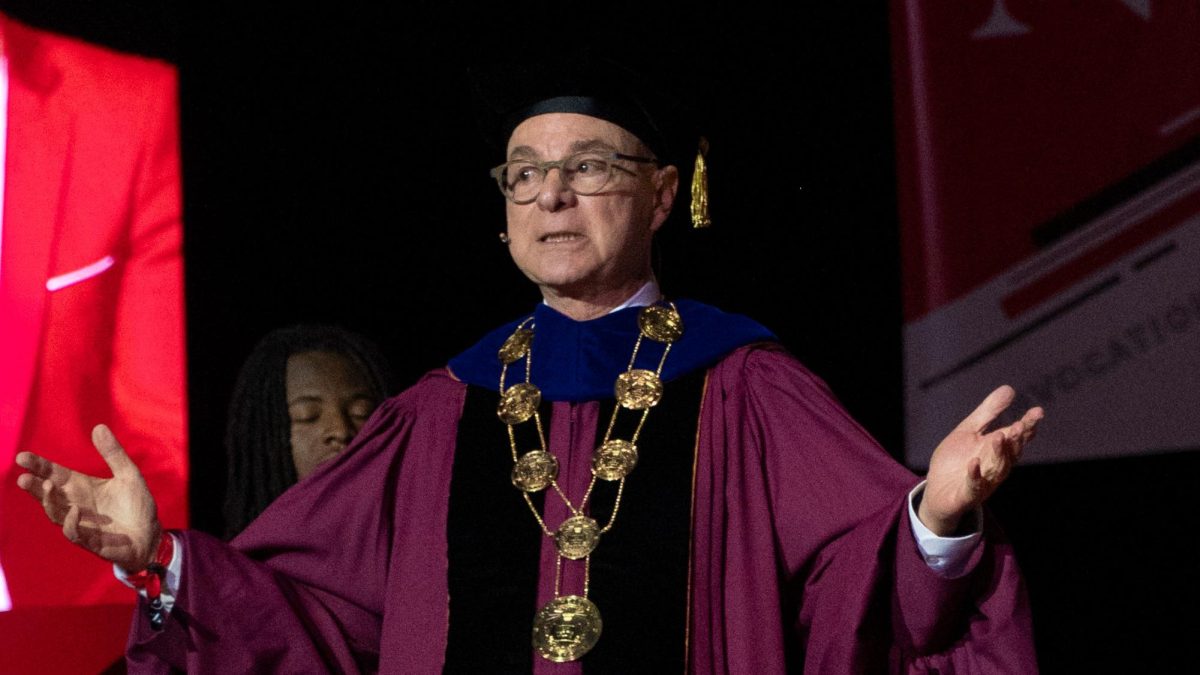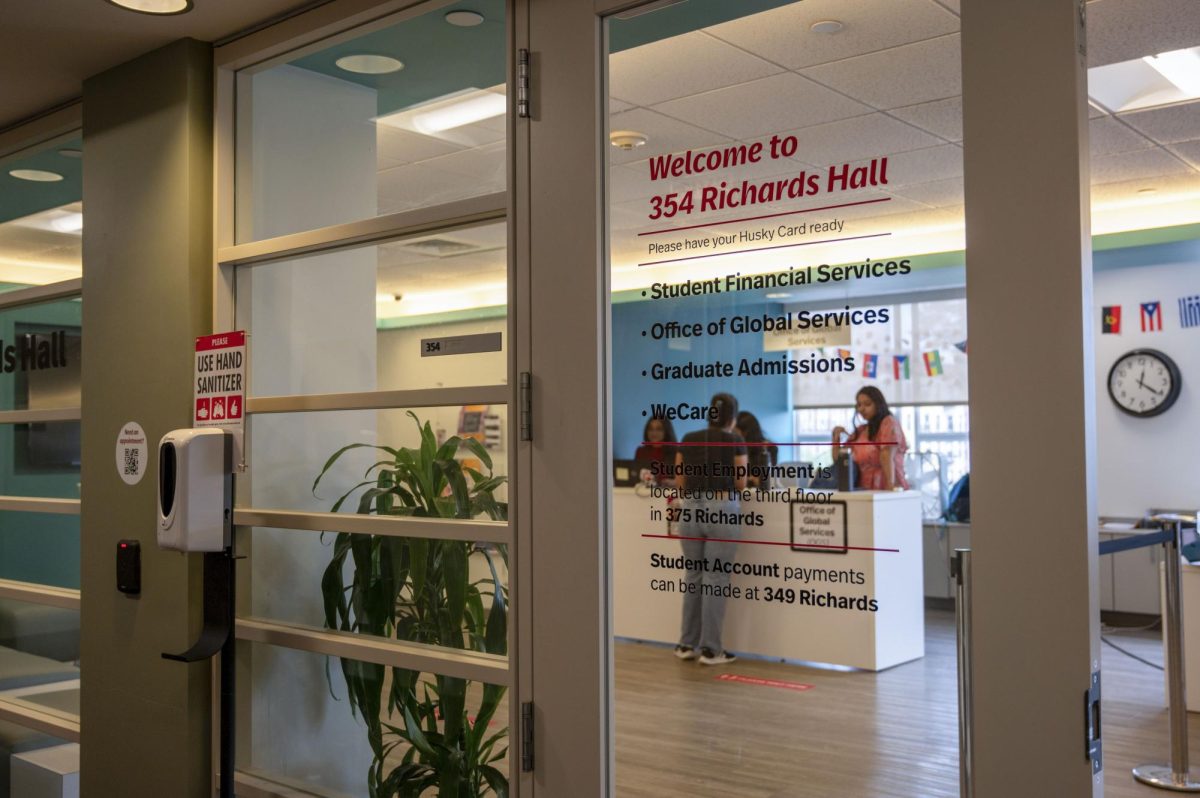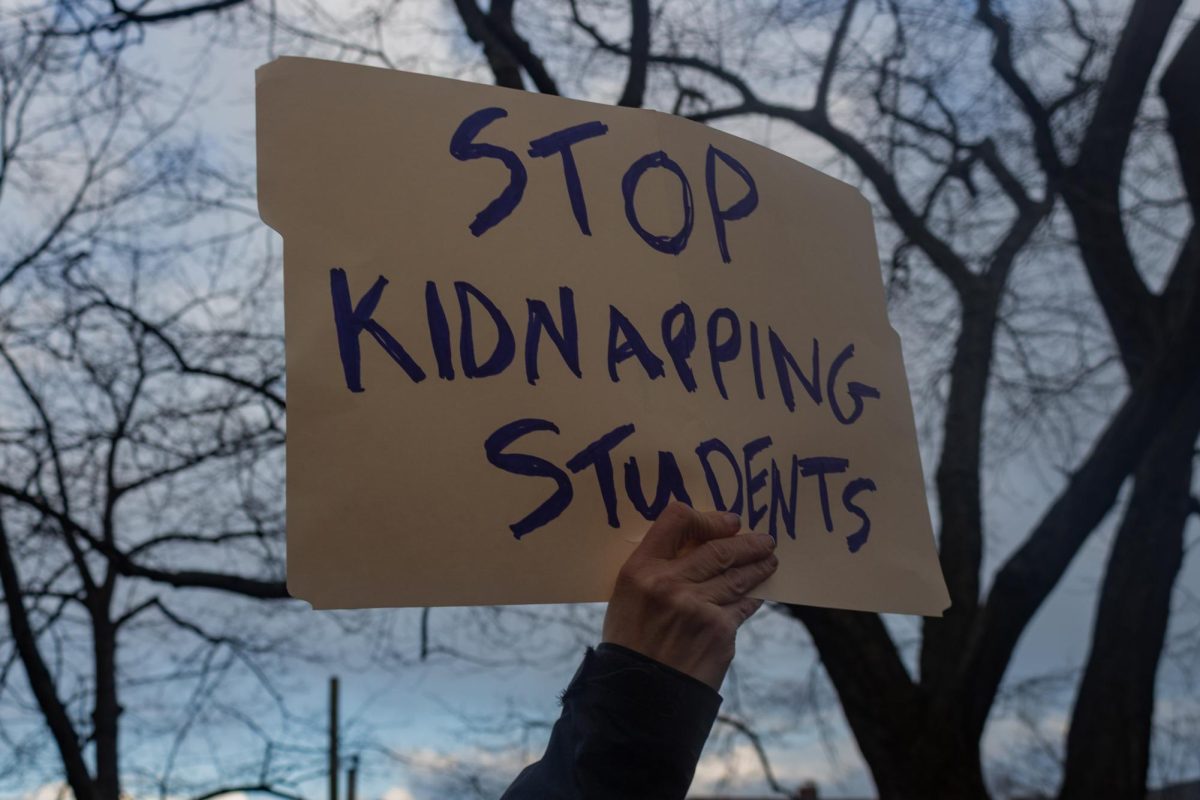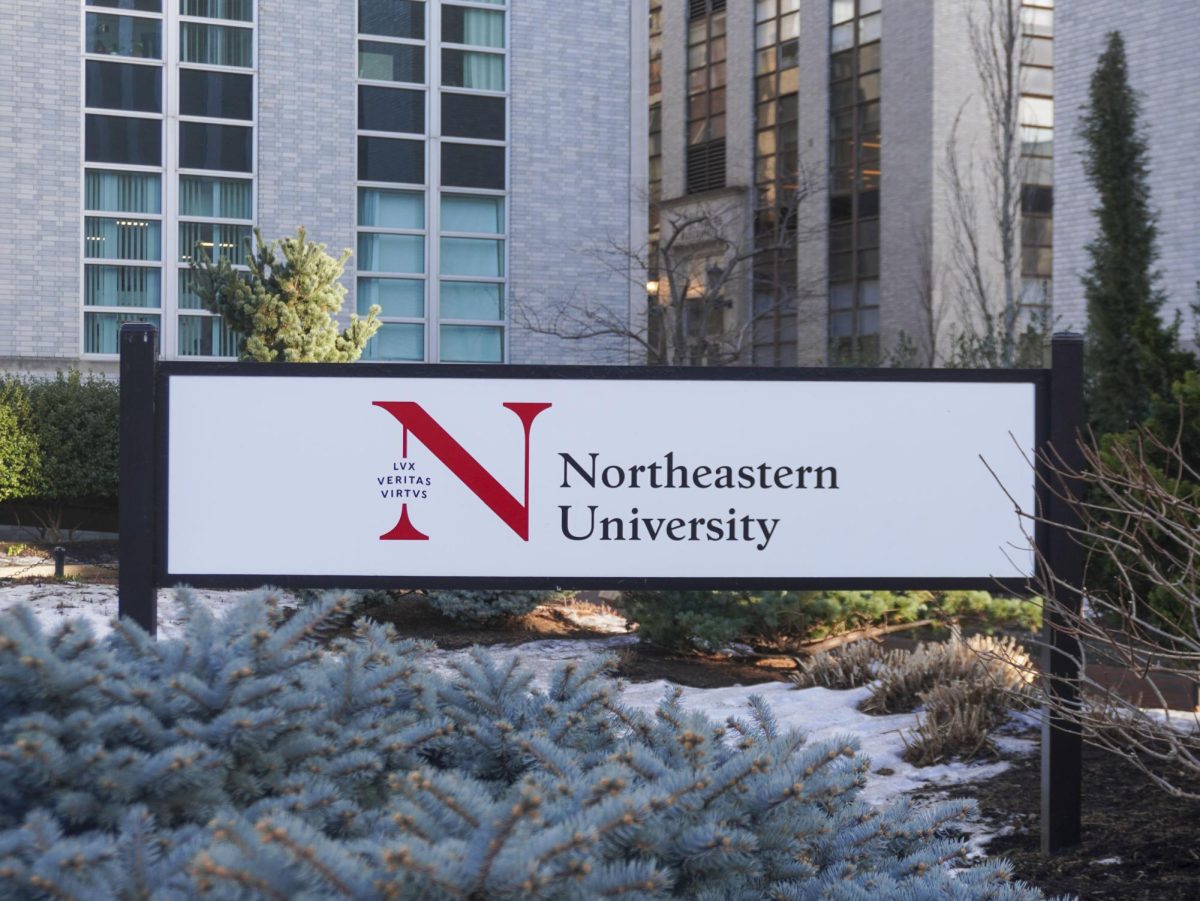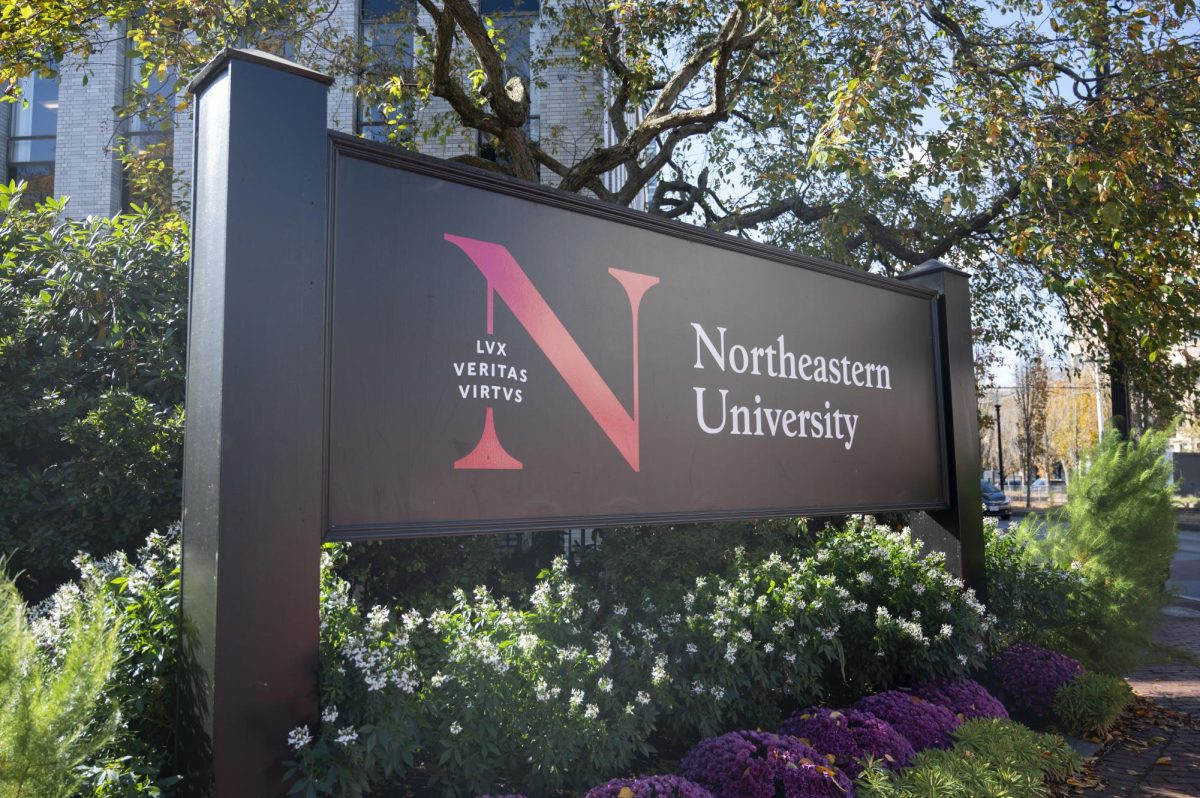After months of tense meetings with university administration and against the backdrop of the federal government’s crackdown on freedom of speech at higher education institutions, the Northeastern faculty senate has staffed and charged its newly-minted academic freedom committee.
Created in the aftermath of the April 2024 pro-Palestine encampment, the committee is tasked with reviewing and recommending updated language for the Northeastern Faculty Handbook and analyzing campus police engagements with protesters. Members of the committee told The Huntington News they plan to have a finalized report on their findings sometime this month.
But as institutions grapple with the new federal administration — and some Northeastern affiliates call out the university’s response — it’s unclear how the committee will recommend Northeastern engage with the slew of attacks on academic freedom.
The faculty senate overwhelmingly voted to create the committee Nov. 20, 2024, after Northeastern faculty expressed deep concern with changes the university made to its freedom of speech policies and “signals” sent by Northeastern administrators indicating they disapproved of faculty participating in on-campus protests.
On Feb. 26, the senate agenda committee announced to the senate that the new body was staffed and charged, according to minutes of the meeting. The academic freedom committee is an “ad hoc” committee: a group established at the discretion of the senate agenda committee “as the need arises,” according to faculty senate bylaws.
The academic freedom committee consists of five faculty members: Bala Maheswaran, a distinguished professor in the College of Engineering; Louise Walker, a professor in the College of Social Sciences and Humanities, or CSSH; Jack Thomas, an assistant teaching professor in the Khoury College of Computer Sciences; Amy McGreevy, an assistant clinical professor in the Bouvé College of Health Sciences; and Michelle Rego, an assistant teaching professor in the College of Professional Studies.
Heidi Kevoe-Feldman, chair of the senate agenda committee and professor of communication studies, previously told The News that any faculty member could volunteer to be on the committee and that she hoped it would consist of faculty both familiar and new to the senate’s conversations on academic freedom.
Maheswaran and Walker will co-chair the committee, which has also received its four charges — the tasks it is responsible for carrying out.
The charges include reviewing existing policy language in the Faculty Handbook and the university’s policies on demonstrations; reviewing language and standards from the American Association of University Professors, or AAUP, on academic freedom and free speech; developing a report that documents and recommends ways to align discrepancies between Northeastern and the AAUP’s language and standards; and meeting with leadership at the Northeastern University Police Department to understand police involvement in protests.
Members of the committee declined to be interviewed. But in a recent senate meeting, during a discussion on how students recently canceled an event after the university required a list of attendees, Walker said that she has received hand-written letters with concerns from colleagues who are hesitant to communicate their concerns via email.
“There is real fear in our community at the moment, especially given the student at Tufts, the researcher at Harvard,” Walker said during the April 9 senate meeting.
“I’m not sure if in the high echelons where these decisions are made, there’s an understanding of how palpable that fear can be,” she added.
Formed against the backdrop of campus protests
The formal formation of the committee is one of the latest developments in the fallout of last year’s pro-Palestine demonstrations and April 2024 encampment. After police arrested nearly 100 protesters at Northeastern, university administration spent the summer updating and revising its academic freedom policies to impose greater restrictions on protests and sanctions on those who violate the university’s Code of Student Conduct.
As these revisions were made, the university struggled to communicate them to faculty — incorrectly stating in its “Safe Campuses, Civil Discourse” FAQ page that they must seek permission to participate in on-campus protests and encouraging students to report faculty for political bias. Northeastern administration walked the statements back, but some faculty felt the university was sending a message.
Walker, a CSSH senator, has consistently called for review of Northeastern’s academic freedom policies and requested university administration disavow its FAQ.
“It’s a really difficult time, and trust is really important in difficult times,” Walker said during a Feb. 12 senate meeting. “This is the fourth time in senate meetings that I’ve asked the senior leadership to disavow the content of that FAQ and to apologize for it.”
During an October 2024 senate meeting, when the topic of the university’s academic freedom policies was first discussed, Walker called for the creation of an academic freedom committee and said it should review the administration’s actions during the pro-Palestine encampment.
Walker wasn’t alone in her critiques of the university: Several Northeastern faculty have strongly rebuked the university’s recently clarified free speech and demonstration policies for having a chilling effect on campus protests.
The senate voted in November to reaffirm the body’s commitment to academic freedom, add a faculty representative to the university’s policymaking board — announced Feb. 26 to be Professor of Supply Chain and Information Management and Secretary of the Senate Agenda Committee Dee Spencer — and create a committee to review Northeastern’s freedom of speech policies.
In February, Northeastern posted on its “Navigating a New Political Landscape” FAQ page a statement outlining its position on academic freedom: “As described in the Faculty Handbook, the university does not impose limitations upon the freedom of faculty members in the exposition of the subjects they teach. Faculty members are always expected to exercise appropriate discretion and professional judgment in all facets of their teaching and research, and abide by Northeastern’s policies.”
But President Donald Trump’s administration has added a new wrinkle into the committee’s established responsibilities and the university’s commitment to academic freedom. As the federal government turns its sights to student protesters and higher education at large, it remains unclear what response the academic freedom committee will recommend.
Facing the Trump administration
The new federal administration has detained and threatened to detain multiple pro-Palestinian protesters despite their legal residency in the country, threatened universities that practice diversity, equity and inclusion policies, revoked hundreds of student visas and started investigating several schools for allegations of antisemitism. It has also worked to dismantle the Department of Education, pressured institutions to remove employees who’ve expressed pro-Palestine views and slashed and is holding hostage federal funding in exchange for the adoption of political demands.
In the wake of these widespread threats, Northeastern’s messaging has remained largely non-confrontational. In its “Navigating a New Political Landscape” FAQ page, multiple advisories to international students via email, a university-moderated interview with the provost and a sole message from the university president, Northeastern’s leaders have not issued the strong condemnation that some community members desire.
But it’s a political strategy that appears to be working.
Unlike other institutions, Northeastern has remained out of the Trump administration’s and congressional Republicans’ crosshairs. University leaders say it has lost only 14 federal grants from a pool of 900, and the school has continued — but slowed — hiring.
While Northeastern has felt the impacts of the Trump administration — The News previously reported that 40 Northeastern students and graduates had their visas revoked — the university has yet to be singled out. (The university said in an FAQ page that it has no evidence the revocations were in relation to political speech or advocacy.)
But pressure is mounting on university leaders, with recent calls on Northeastern administration to outwardly condemn the federal government’s actions and openly embrace academic freedom and freedom of speech — pillars of higher education that some say Northeastern is attempting to limit.
Earlier this month, for instance, an on-campus Jewish student group canceled an event titled “Israel’s Attack on Gaza: The Question of Genocide, and the Future of Holocaust and Genocide Studies” after the university allegedly asked the group to give it the names of registered attendees.
Organizers of the event said providing the list could risk the safety of those in attendance, but the university said it was standard procedure to require the list. In response to the cancellation, Raz Segal, the Israeli historian and associate professor of Holocaust and genocide studies at Stockton University scheduled to speak at the event, criticized the university’s policy.
“At a time when [U.S. Immigration and Customs Enforcement] agents are abducting off the streets students exercising their right to academic freedom and free speech on the issue of Israel’s attack on Gaza, university administrators should aim to protect students, not put them at risk,” Segal wrote.
More broadly, across Northeastern and several other universities, there are calls to resist what many see as an existential threat to higher education.
Professors at Northeastern and at other institutions have authored op-eds calling for coordinated resistance. Students have reignited organizing efforts. And over 200 university community members signed an open letter March 25 asking university leadership, for the protection of the institution’s research and academic freedom, to take “immediate and unequivocal action.”
“The only hope for preserving the academic environment at Northeastern University is to exert strong and consistent pressure on this administration by an informed public,” the letter reads. “In this critical moment, it is our duty to inform the public of the ongoing threats to science and higher education.”
With a limited scope of responsibilities, it remains unclear the extent to which the new academic freedom committee will address actions taken by the new federal administration or if the committee will advise the university to take any specific action.
Deputy campus editor Lily Cooper and news staff Chloe Craft contributed reporting.



